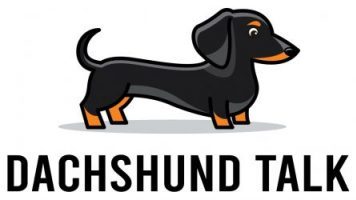Welcome to our comprehensive guide on the pronunciation of the word Dachshund. This article aims to provide a detailed explanation of the correct pronunciation, especially focusing on the UK pronunciation. We believe that understanding the correct pronunciation of words, especially those that refer to beloved pets, is a crucial aspect of communication. Let’s dive in!
Origin of the Word Dachshund
The term Dachshund originates from Germany and is a compound word made up of two parts: ‘Dachs‘ and ‘Hund‘. ‘Dachs’ translates to ‘badger’ in English, and ‘Hund’ means ‘dog’. Therefore, the word Dachshund essentially means ‘badger dog.’ This name was given to the breed due to its original purpose – hunting badgers. For more information on the German language and its pronunciation rules, you can visit this resource.
Correct Pronunciation in German
To pronounce Dachshund correctly in German, it’s important to understand how to pronounce each part of the word. ‘Dachs’ is pronounced as ‘dax,’ and ‘hund’ is pronounced as ‘huhnt’ or ‘hoont’. However, in German, the ‘t’ sound at the end is replaced with a ‘d’ sound, making it ‘dax-huhnd’. German pronunciation rules can be complex, especially for non-native speakers. For a more in-depth understanding of these rules, check out this guide.
Common Mispronunciations
Despite its German origins, the word Dachshund is often mispronounced, especially by English speakers. Here are some of the most common mispronunciations:
- Dash-hound: This is perhaps the most common mispronunciation. It arises from the English tendency to pronounce words as they are spelled.
- Dash-und: This is another common mispronunciation, which, like the previous one, is a result of reading the word as it is spelled.
- Dock-sund: This mispronunciation is more common in the US and results from the influence of the American accent.
These mispronunciations, while common, can lead to confusion and misunderstandings. It’s important to remember that the correct pronunciation is ‘dax-huhnd‘, as per German pronunciation rules.
Correct Pronunciation in the UK
In the UK, the pronunciation of Dachshund is slightly different from the original German pronunciation. The most common UK pronunciation is ‘Dak-sund’, with the ‘a’ in ‘Dak’ pronounced like the ‘a’ in ‘father’. This pronunciation, while not entirely accurate from a German perspective, is widely accepted and understood in the UK. It’s important to note that pronunciation can vary based on regional accents and personal speech habits. However, as long as the pronunciation is close to the accepted norm, it will generally be understood.
Dachshund Pronunciation and Related Aspects
The Influence of Accents on Pronunciation
Accents can significantly influence the pronunciation of words. For instance, the American accent often leads to the pronunciation ‘Dock-sund’ or ‘Dox-hund’ for Dachshund. Similarly, regional accents within the UK can also lead to variations in pronunciation. Some common influences of accents on the pronunciation of Dachshund include:
- Vowel shifts: The ‘a’ in ‘Dachshund’ might be pronounced differently based on the speaker’s accent.
- Consonant changes: The ‘d’ in ‘Dachshund’ might be pronounced more like a ‘t’ in some accents.
For more information on how accents can influence pronunciation, you can visit this resource.
Acceptable Variations in Pronunciation
While the original German pronunciation of Dachshund is ‘dax-huhnd’, there are several acceptable variations in English-speaking countries. These variations, while not technically correct, are widely understood and accepted. Some of these include:
- Dock-sund: This is a common pronunciation in both the UK and the US.
- Dox-hund: This pronunciation is more common in the US and is influenced by the American accent.
- Dash-und: While not technically correct, this pronunciation is often used and understood.
It’s important to remember that language evolves and changes over time, and pronunciation is no exception. For a more in-depth understanding of the importance of correct pronunciation, check out this guide.
FAQs on Dachshund Pronunciation
Here are some frequently asked questions about Dachshund pronunciation:
- What is the correct pronunciation of Dachshund?
- The original German pronunciation is ‘dax-huhnd’. However, in the UK, it’s commonly pronounced as ‘Dak-sund’.
- Why is Dachshund often mispronounced?
- The word Dachshund is often mispronounced due to its German origin and the English tendency to pronounce words as they are spelled.
- Are there acceptable variations in Dachshund pronunciation?
- Yes, variations like ‘Dock-sund’, ‘Dox-hund’, and ‘Dash-und’ are commonly used and widely accepted.
The Importance of Correct Pronunciation
The correct pronunciation is crucial for clear communication. Mispronunciations can lead to misunderstandings and confusion. In the case of Dachshund, correct pronunciation shows respect for the breed’s German origins and ensures clear communication when discussing the breed. However, it’s also important to remember that language is flexible, and variations in pronunciation are often accepted and understood.
Conclusion
Understanding the correct pronunciation of Dachshund can enhance your communication and show respect for the breed’s origins. While the original German pronunciation is ‘dax-huhnd’, variations like ‘Dock-sund’ and ‘Dox-hund’ are widely accepted, especially in English-speaking countries. Remember, language is flexible, and the most important thing is clear and respectful communication. Happy talking (and barking)!









